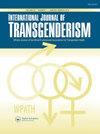Investigating the outcome of the initial assessment at a national transgender health service: Time to review the process?
Q1 Social Sciences
引用次数: 12
Abstract
ABSTRACT Background: Globally, there is a lack of a standardized assessment process prior to the initiation of gender affirming medical interventions and consequently there is a discrepancy in this process among different transgender health services. Aim: The main objective of this study is to investigate the outcome of the initial assessment process at a national transgender health service. Method: The outcome of people over the age of 17 years, assessed at a large national transgender health service in the United Kingdom during a 2-year period was categorized into: (1) recommendation for cross-sex hormone treatment, or (2) no recommendation for cross-sex hormone treatment. In addition, 200 case notes were reviewed in order to investigate the level of agreement between the two clinicians involved in the assessment process. Results: During the study period, a total number of 617 people completed their assessment at the service. Following assessment 380 (61.6%) patients were recommended for cross-sex hormone treatment, leaving 237 (38.4%) patients who required a longer assessment period or were discharged. The factors associated with being recommended for cross-sex hormone treatment were having socially transitioned, not smoking, having initiated cross-sex hormones prior to assessment, being older, and assigned male at birth. Out of the 200 case notes reviewed, agreement between assessor 1 and 2 (3 months apart) was found in 88% (n = 176) of the cases. Discussion: Although the results of the study may not be generalizable to other international centers, questioning the assessment process and the role of the assessors is important to ensure treatment is offered in a timely and efficient manner. The findings from this study suggest that the routine inclusion of two assessors needs to be reviewed.调查国家跨性别卫生服务机构的初步评估结果:是时候审查这一过程了?
背景:在全球范围内,在性别肯定医疗干预措施启动之前缺乏标准化的评估过程,因此在不同的跨性别卫生服务中,这一过程存在差异。目的:本研究的主要目的是调查国家跨性别卫生服务机构初步评估过程的结果。方法:在英国一个大型国家跨性别健康服务机构进行的为期2年的评估中,对17岁以上人群的结果进行了分类:(1)建议使用异性激素治疗,或(2)不建议使用异性激素治疗。此外,还审查了200个病例记录,以调查参与评估过程的两名临床医生之间的一致程度。结果:在研究期间,共有617人在服务中心完成了他们的评估。评估后,380例(61.6%)患者推荐使用异性激素治疗,237例(38.4%)患者需要更长的评估期或出院。与推荐进行变性激素治疗相关的因素有:社会转变、不吸烟、在评估前使用过变性激素、年龄较大、出生时被指定为男性。在审查的200例病例记录中,88% (n = 176)的评估员1和评估员2(间隔3个月)的意见一致。讨论:尽管该研究的结果可能无法推广到其他国际中心,但质疑评估过程和评估人员的作用对于确保及时有效地提供治疗是重要的。本研究的结果表明,常规纳入两名评估员需要进行审查。
本文章由计算机程序翻译,如有差异,请以英文原文为准。
求助全文
约1分钟内获得全文
求助全文
来源期刊

International Journal of Transgenderism
Social Sciences-Gender Studies
CiteScore
5.10
自引率
0.00%
发文量
0
期刊介绍:
International Journal of Transgenderism, together with its partner organization the World Professional Association for Transgender Health (WPATH), offers an international, multidisciplinary scholarly forum for publication in the field of transgender health in its broadest sense for academics, practitioners, policy makers, and the general population.
The journal welcomes contributions from a range of disciplines, such as:
Endocrinology
Surgery
Obstetrics and Gynaecology
Psychiatry
Psychology
Speech and language therapy
Sexual medicine
Sexology
Family therapy
Public health
Sociology
Counselling
Law
Medical ethics.
 求助内容:
求助内容: 应助结果提醒方式:
应助结果提醒方式:


